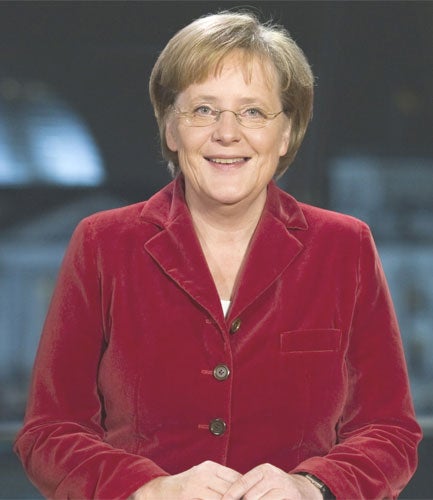World Focus: Europe's new team in need of game plan

The European Union has rarely had so many problems. It has never had so many leaders. The Big Question for 2010 is whether the proliferation of leaders will help to address the proliferation of problems. Or will it simply demonstrate, in multiple, Europe's vacuum in leadership?
The problems are obvious enough. The European economy is straggling unevenly out of recession. The difficulties of the weakest economies – and especially of the Greek economy – threaten to propel the European single currency into its worst-ever crisis. Europe, arguably the big loser at the Copenhagen climate conference, must find a way of holding together its own, relatively ambitious environment policies. There is the new assertiveness of China. There is the awkward EU relationship with Barack Obama's America; ditto with Vladimir Putin's Russia. There is the future of Western policy in Afghanistan. There are the new threats from extreme Islamist terrorism...
A new system of EU governance begins today with a new European Commission under an old leader cooperating – or competing – with a brand new President of the European Council and the new high representative for foreign affairs. At the same time, the Spanish government, with a pleasant young leader who has never previously shown any European leadership, will take over what remains of the system of rotating national presidencies of the EU.
As for the other "natural" leaders of Europe, the German chancellor, Angela Merkel, enters the new decade stronger than ever domestically but strangely unwilling to emerge as a European stateswoman. President Nicolas Sarkozy, who would love to be a European statesman (and assumes that he is) faces a crush of domestic problems and awkward mid-term regional elections in March. Britain's far-more-important elections, in May or June, could replace the reluctantly "European" Gordon Brown with a leader who will plunge the EU into yet another long quarrel over what it does and why.
The "post-Lisbon treaty" EU has problems enough. Herman van Rompuy, the new European Council president, and Baroness Cathy Ashton, the new High Representative, have been gently – perhaps too gently but they were picked to be gentle – trying to establish how they should work within the new institutional jig-saw. Contrary to a widely-held impression, the creation of a new "president of the EU" has not abolished the old six-monthly rotating, national presidencies of the European Union. Mr Van Rompuy will preside over EU summits. Baroness Ashton will preside over councils of foreign ministers. From today until the end of June, the Spanish government will preside over all other ministerial meetings. In the second half of the year, it will be Belgium's turn.
Mr Van Rompuy has sensibly called for an informal summit in February to discuss economic problems and, implicitly, the Greek crisis and its possible repercussions on the Euro. The Spanish prime minister, Jose Luis Zapatero, had not bargained for such a meeting and has had to scramble to adjust. Spain – with 20 per cent employment and astronomical debts – is one of the second ring of "problem" countries in Euroland. If Greece is allowed to go bust, market pressure will switch to Spain and Ireland. If Greece is bailed out, ditto.
The summit could therefore be rather awkward for Mr Zapatero. It may be equally awkward for Chancellor Merkel. There is no easy solution to the Greek crisis but a number of countries – France included – believe the "strong Euro" policies of the independent European Central bank have suited Germany more than other economies. Can Ms Merkel give her blessing to a very unGerman new approach – such as a partial transfer of national debt to some form of common European debt – to prevent a single currency crisis?
Mr Zapatero's government has also annoyed Mr van Rompuy. Madrid has announced three EU summits in Spain in the next six months – with the US, Latin America and Morocco. All threecould boost Mr Zapatero's flagging domestic ratings. Mr van Rompuy is miffed that the summits will be in Spain. He has insisted that, in future, the calling of such summits must be under his control and held in Brussels.
It remains to be seen whether these tensions are post-Lisbon teething problems or symptoms of stultifying contradictions in the new system. Mr van Rompuy and Baroness Ashton were chosen to be consensual rather than charismatic. Unfortunately, the times demand not just new leaders but new leadership.
Join our commenting forum
Join thought-provoking conversations, follow other Independent readers and see their replies
Comments
Bookmark popover
Removed from bookmarks